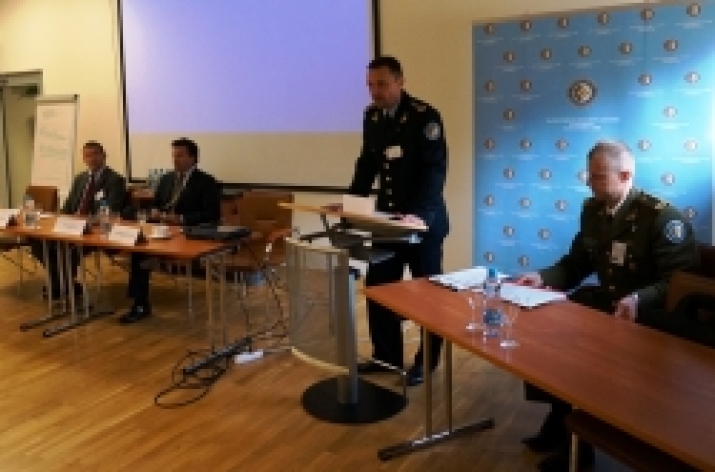Training Landscape Development conference in the area of energy security
NATO ENSEC COE organized Training Landscape Development conference in the area of energy security was held on September 10-11th, 2013 in Trakai with the main aim to provide a high level discussion forum for the community of interest in the area of energy security for both inside and outside of NATO.
During the conference three main questions were raised: why education and training (E&T) in the area of energy security is important, who can facilitate E&T and what level of E&T is needed.
The conference was attended by representatives from wide spectrum of military and civilian institutions in NATO and Partner nations. First session of the conference included key note speakers - Mr. Timo Koster, Director of Defense policy and Capabilities Directorate, NATO HQ, Mr. Christophe-Alexandre Paillard, Deputy Director of Strategic Affairs Directorate, French MOD speaking about NATO Energy Security Agenda and its challenges and opportunities. NATO Training Landscape and the relevance of energy security in the mid-long perspective were presented and discussed by Mr. Michael Ruele, Head of Energy Security Section, Emerging Security Challenges Division, NATO IS, and Mr. John. P. Kelley, JFT ETEE Coordinator, Dr. Jack L. Clarke, Director of Program on Civil Security (STACS), Marshall Center. Further sessions included presentations on energy and resources in operational environment and NATO Training and Education management systems with various speakers - CDR U. Schoene, Senior National Representative Deputy Dean of Academics, NATO School Oberammergau, Col. R. PhD. Zdzislaw Sliwa, Instructor NATO Joint OPS, Baltic Defense College (BDCOL), Dr. Elnur Soltanov, Assistant Professor, Caspian Centre for Energy and Environment. Many more experts and professionals exchanged the theoretical and practical knowledge on NATO Energy Security agenda, NATO E&T global programming process, operational energy security issues, insights on current status of energy security in the military, relevance of the topic in the strategic and operational levels and discussion was raised on future training process in the area of energy security. The conference was finalized with brainstorming and affiliating diagraming for the necessary training and education requirements in the politico-military and strategic levels, as well as operational and tactical levels.
Main recommendations for the NATO ENSEC COE were identified - to proceed on projects related to energy efficiency in the military and continue raising awareness in the area of energy security. Another suggestion was proposed that NATO ENSEC COE should be responsible for the organizing and planning training in the area of energy security and cooperate with NATO Cooperative Cyber Defense Centre of Excellence (CCD COE), NATO Center Against Weapons of Mass Destruction (WMD) and NATO Center of Excellence Defense Against Terrorism (COE-DAT). BDCOL identified tentative framework for cooperation with NATO ENSEC COE.
Further analysis of the conference outcomes will produce inventory of options of education and training in the area of energy security on strategic and operational levels, including settings for future NATO defense and exercise planning. As the deliverables of the conference, a food for thought paper is to be published which should give a new impetus for further discussions and practical work in NATO framework and beyond in terms of training and education in the area of energy security.

